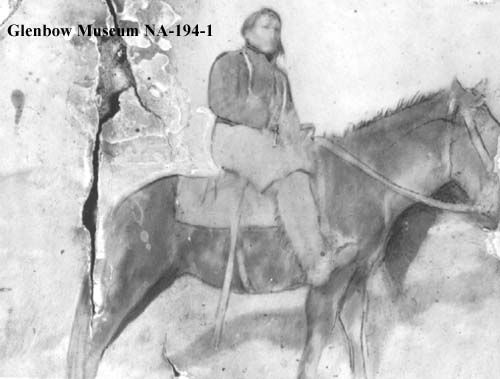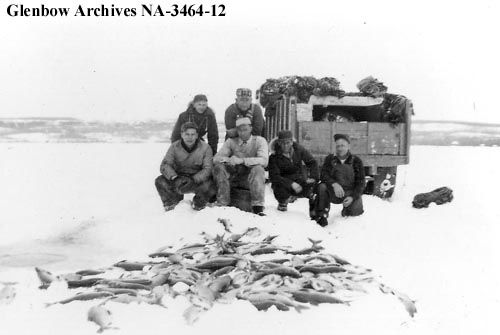
HISTORY
The History of Paul First Nation
PRE-TREATY HISTORY
The Paul First Nation occupies a tract of land along Wabamun Lake, AB. This land was set aside by the Government of Canada in 1892, and is known as Wabamun Indian Reserve 133A and B. It is situated approximately 70 Km West of Edmonton, AB. The Nation is comprised of 1926 members (INAC 2005 IRS) of which 1110 live on-reserve. Buck Lake 133C (Also a part of the Paul First Nation Lands) largely unoccupied, has a tragic history. The influenza epidemic of 1918 decimated the people with several survivors fleeing to Wabamun, and other Stoney Tribes in the area. Today, the four square mile section land base is used by our people for camping during the winter months, and for picking berries, medicines or hunting in the summertime.

Historically, the people traveled over a vast territory from the Hudson Bay to the Rocky Mountains, along the foothills to Montana USA. Allied with the Cree, the Nakoda, acquiring modern tools and goods from the Hudson Bay Company, trekked westward taking part in the fur trade, settling mainly in the Foothils, and the two other groups of Stoney, one of whom became Paul First Nation chose land just North-West of present-day Edmonton, AB.

The culture, of the people is nature based and holistically intertwined to ensure adequate conditions for future generations. The world view of the people is to protect nature, and honor all things animate and inanimate. This is the first and foremost priority in the sacred duty owed to creation, passed on from generation to generation using ancient practices for countless millennium. First Nations people, the "people of the earth" view nature as an intricate web whereby everything is sacred and spiritual, each needing the other to survive and thrive. It is our hope that the evolution of man, in time and space, in particular industrial and economic development retains and fosters this world view so that all of creation will be afforded due respect in all areas of activity.

POST-TREATY HISTORY

TIME: 9:00 AM (MST) DATE: MARCH 26, 2008
AFN National Chief Phil Fontaine on treaties between
First Nations and the Crown or Canadian government.
The unique two-day conference, entitled "As Long as the Sun Shines," brings together First Nation delegates from across the country, federal representatives and various experts to discuss key matters relating to the implementation of First Nation treaties in Canada. The focus of the discussions is to explore perspectives and opportunities to move forward on a common understanding for treaty implementation.
IMAGES FROM THE PAST

1926 - ASSINIBOINE WOMEN NEAR WABAMUN LAKE

1928 - WABAMUN LAKE FISHING EXPIDITION
